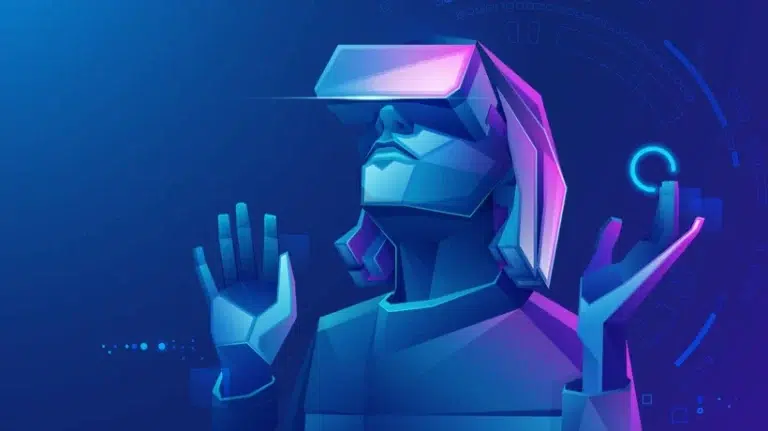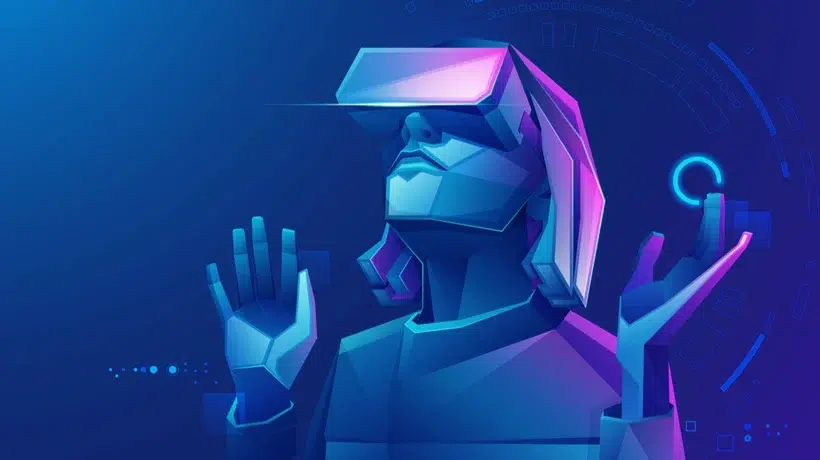

As technology continues to advance, the way we live and interact online is evolving rapidly. The Metaverse Revolution is the latest wave of change that promises to transform the way we live and work in virtual spaces. The Metaverse is the next big thing in the digital world, and it’s set to impact everything from entertainment to education to e-commerce.
What is the Metaverse?
The Metaverse is a term coined by sci-fi author Neal Stephenson in his novel Snow Crash. The Metaverse is a virtual universe where users can interact with each other in real-time, using a range of advanced technologies such as VR, AR, blockchain and AI. The Metaverse is envisioned as a fully immersive world where users can create their own avatars, build their own digital assets, trade virtual goods and services, and even work or attend school.
What makes the Metaverse so revolutionary is that it’s not just another form of social media or gaming. It’s an entirely new way of experiencing the internet, one that takes advantage of emerging technologies to offer a more engaging, fulfilling, and meaningful experience. The Metaverse allows users to have a degree of agency and control over their virtual identity, something that traditional social media platforms often lack.
The Implications of the Metaverse
The Metaverse has the potential to transform a wide range of industries, from entertainment to finance. In gaming, the Metaverse has already started to take shape with games like Fortnite and Minecraft. In both these games, users can create their own worlds, interact with other players, and trade virtual goods and services. The Metaverse goes beyond gaming to offer new types of experiences such as virtual concerts, art galleries, and even tourism.
Outside of entertainment, the Metaverse has the potential to transform how we learn and work. In education, the Metaverse can provide immersive and engaging experiences that simulate real-world scenarios. This can be especially valuable in fields such as medicine, where students can practice surgical procedures in a virtual environment. In the workplace, the Metaverse can allow teams to collaborate in virtual spaces, saving time and money on travel while also providing a more engaging and interactive experience.
In e-commerce, the Metaverse represents an entirely new way of doing business. In the Metaverse, users can buy and sell virtual goods and services using cryptocurrency. This opens up new opportunities for businesses to create virtual storefronts and offer products and experiences that aren’t possible in the physical world.
Challenges and Opportunities
As with any new technology, the Metaverse presents both challenges and opportunities. Some critics worry that the Metaverse will further erode our already fragile sense of reality, leading to increased isolation and disconnection. Others worry about the potential for abuse and harassment in virtual spaces.
At the same time, the Metaverse represents a tremendous opportunity for innovation and growth. It offers new ways of experiencing the world and new possibilities for creative expression. The Metaverse also has the potential to promote greater inclusion and equity in online spaces by providing a more level playing field for individuals and communities.
The Metaverse Revolution has only just begun, but it’s already clear that it will have a profound impact on the way we live and interact online. As we continue to explore and develop this new frontier, it will be important to keep in mind both the challenges and the opportunities that the Metaverse presents. By doing so, we can work to create a more inclusive and equitable digital world for all.